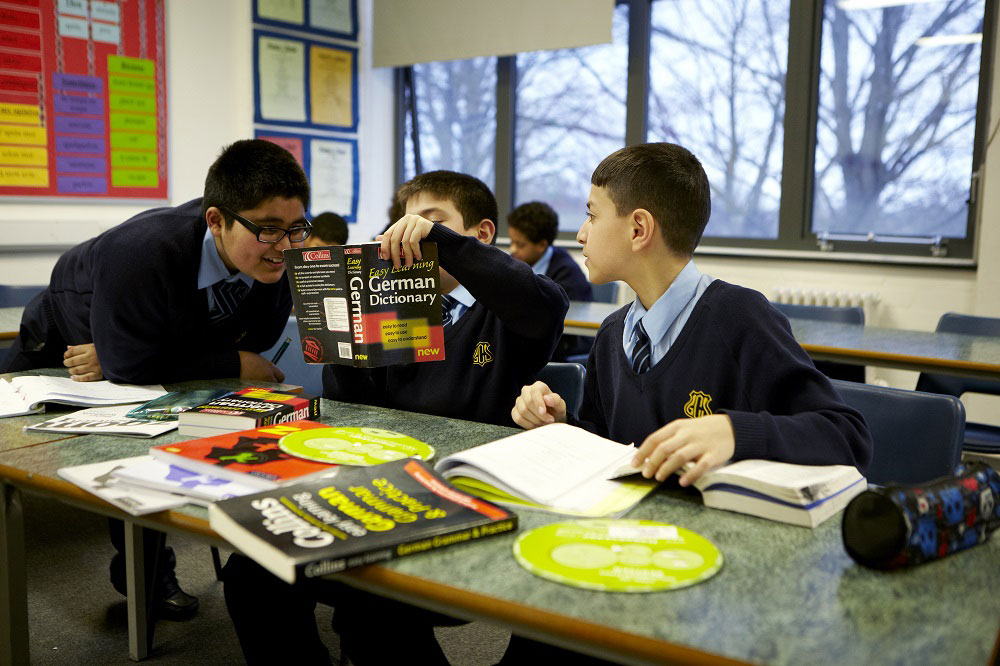An Adaptable Model
The Language Futures approach can be used to support a variety of curriculum contexts and approaches to teaching and learning across both primary and secondary schools. For example, as a:
- first language class for students;
- second or even third language option for higher ability students;
- replacement for a first language class for students who have become disenchanted with their language learning or with more conventional methods of language teaching;
- way of introducing languages into primary schools where there may not be trained language teachers with mentors providing models of language for the children;
- school enrichment programme, an extra-curricular/after school club for more able or highly motivated students wishing to study additional languages not offered within the curriculum;
- cross-school offer for bilingual learners wishing to become more literate in their own home language and/or gain accreditation.
Creating engaging teaching and learning:
- by using a project-based approach within the mainstream languages curriculum, students research and solve problems and present their outcomes to peers and, ideally, a wider public audience which is a powerful motivator;
- extending the use of mentors throughout mainstream language lessons can enable greater use of group work where mentors can work more in depth with students;
- placing greater emphasis on Language Learning Strategies and Knowledge about Language in lessons helps students to become more independent and creative language learners.
For further information on how the Language Futures approach can be used in a variety of curriculum contexts, you can watch a video where our Schools Adviser Ann Swarbrick speaks about how the approach can be implemented in schools.
Click, Connect, Learn Project
Since 2013, Nesta and the Cabinet Office have been working together to increase the availability of volunteer-led tutoring within schools in order to improve the educational attainment of disadvantaged pupils. To this end, the Click, Connect, Learn fund was launched in order to explore how digital technology could work to make volunteer tutoring more accessible. In 2017, Language Futures was announced as one of three organisations to receive a grant to model, implement and evaluate their work in this area.
Students speak very highly of the positive impact of volunteer mentoring within Language Futures lessons. However, there can be some geography-based barriers to mentoring: finding mentors for all requested languages, consistent mentor attendance, and travel arrangements. Therefore, a key objective of the Click, Connect, Learn funding is to explore recruiting mentors to deliver sessions online. We are trialling online mentoring in seven schools in order to offer more students their own choice of language. Funding will also support training for schools involved as well as for the mentor volunteers involved in online tutoring.
The Click, Connect, Learn project is led by our partner organisation Whole Education. For further information, please contact [email protected] or you can apply directly to become an online mentor.






What pupils think about Language Futures:
“In LF, I love the independence and being able to learn the way I want to. Sometimes I find a way of learning or remembering Spanish that helps me and me alone and I feel I can do it because it works for me.”
''I think it has made me more capable of seeing patterns in verbs, sentence order etc. It has also given my dialogue more flow, and, I think, it is more natural.''
''Language Futures really suited me, because I could learn what interested me, as well as what was required of me. I loved being able to learn about the cultures of Spain and Latin America alongside the spoken and written language because it like I was getting a more rounded, useful and adult Spanish language under my belt.''
“You are more independent in LF, which has made me more independent in my other lessons as well.”
